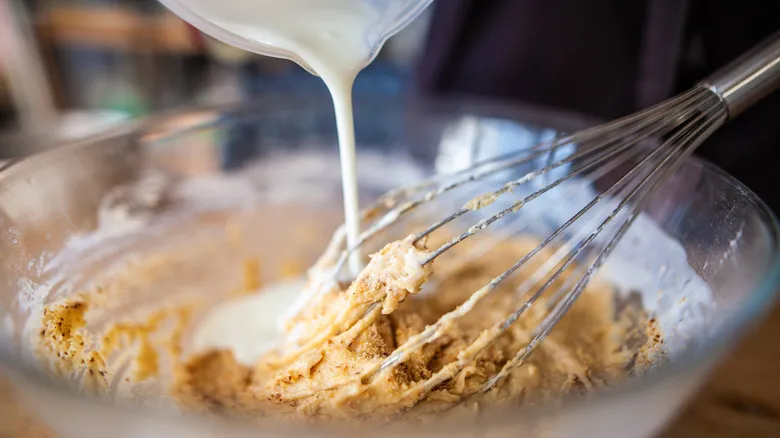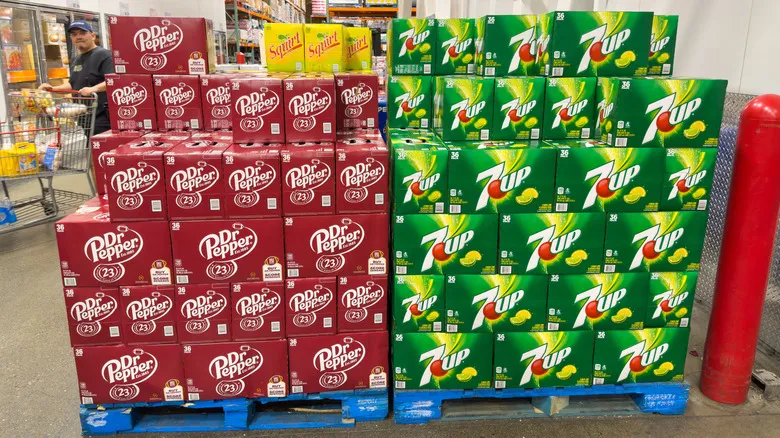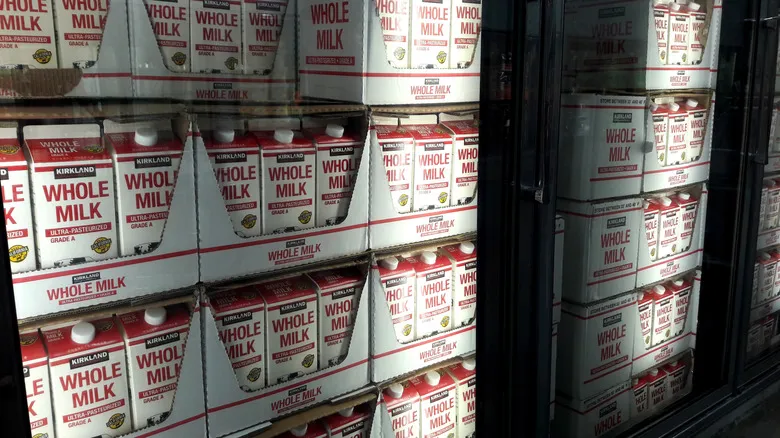Use your milk before you lose it

If you're not inclined to source your milk elsewhere, we completely understand. It's incredibly convenient to pick up what you need at Costco and be done with it. Luckily, there are plenty of ways to make use of a gallon of milk, even if you typically only consume half a gallon each week.
Beyond the usual options like pouring it over cereal or incorporating it into your mac and cheese for added creaminess, milk can be utilized in a variety of creative ways. You can whip up a tasty vanilla pudding, create a rich white sauce for pasta, or blend it into a smoothie or shake. It can also enhance the creaminess of various soups or be used to prepare a fluffy breakfast quiche. For coffee enthusiasts, you can froth it for lattes or transform it into delicious coffee milk, which was the secret ingredient in Dunkin' Donuts' now-discontinued Dunkalatte.
Additionally, if you find yourself with extra milk, you can freeze it to prevent spoilage. The American Dairy Association states that milk can be frozen for up to six months, although they suggest using it within a month for optimal quality. When you're ready to use it, thaw the milk in the refrigerator over a few days—never leave it out at room temperature to thaw—and give it a good shake before using.
Recommended

Why You Should Avoid Buying Soda At Costco

5 Food Items You Never Should Buy At A Gas Station

Can You Use Your Costco Membership Internationally?

Everything We Know About The Costco Strike So Far
Next up

